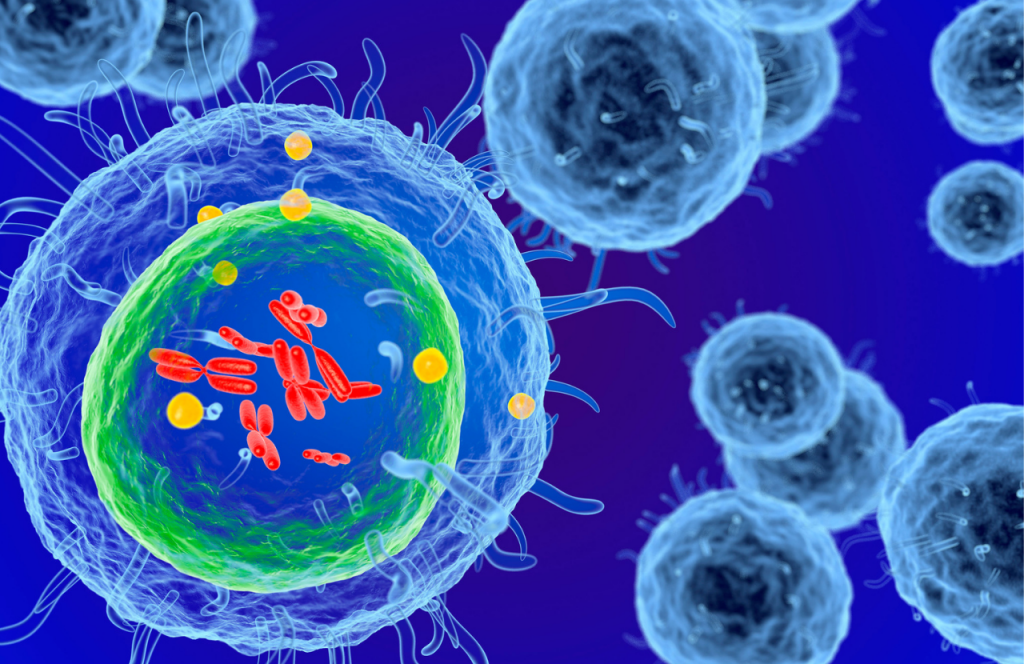Sex feels so good, doesn’t it?
Of course, it can simply feel good sexually, but there are more pleasurable feelings as well.
For example, it’s a feeling of happiness and an exhilarating feeling of being relieved of stress.
But the benefits of sex don’t stop there. In fact, sex has a positive “health” effect.
You may be wondering what kind of wonderful benefits it has on you. So many benefits, just to name a few: “rejuvenation,” “weight loss,” “sleep support,” “mental stability,” and “improved immunity.
You may have heard before that sex is good for a girl’s beauty and diet. It’s probably easy to get a sense of what it’s all about.
But it may be hard to understand what it means to sleep, mental stabilization, and even improved immunity.
The important point is that there are so many great benefits to sex. The more you learn about the benefits you get from sex, the more you’ll enjoy having sex with him.
So, in this article, we will thoroughly explain the 10 benefits of sex with scientific data.
Table of Contents
Why sex is good for your health

Sex is good for your health. On the other hand, it’s not an exaggeration to say that girls can’t be healthy if they don’t have sex.
Our physical health is tied to our sexual health. It’s easy to imagine that women have a sexual cycle, which affects our physical health.
Furthermore, the psyche is also strongly affected by it.
Even if you feel anxious and stressed out in your daily life, sex can help you get rid of those things and live a healthier life, both physically and mentally.
Some of the main benefits of sex include:
- Improves immune system.
- It’s a great stress reliever.
- It’s a good workout.
- The functioning of the autonomic nervous system is regulated.
- It can be expected to improve urinary incontinence.
- The effect of rejuvenation makes you beautiful.
- It can help with premenstrual syndrome.
- It can prevent the aging of the brain.
- It leads to good sleep.
- You’ll have mental stability.
There are a few things that may be somewhat easy to visualize and a few things that you may not know why.
In particular, you might be surprised to learn that it improves your immune system, prevents brain aging, and stabilizes your mental health.
These benefits are also enhanced when a woman gets pleasure or reaches “orgasm”.
In other words, when a woman has sex, not only does it make her feel good, but it can also reform her physical and mental state, which is a true two birds with one stone.
Let’s take a closer look at each of the above 10 amazing benefits of sex, one by one.
1. Boosts the immune system

When a woman has sex, her immune system is improved.
This benefit may seem to be the most surprising or false of all the benefits we’re going to show you.
However, there is solid scientific evidence for this. One study examined the relationship between frequency of sexual activity and immunity among 112 college students.
Specifically, they analyzed saliva samples from four groups of college students based on their frequency of sex: none, infrequent (less than once a week), frequent (once to twice a week), and very frequent (three or more times a week).
On the other hand, data on sexual satisfaction with sex and length of the couple’s relationship did not differ significantly from the other groups.
112 college students reported the frequency of their sexual encounters and were divided into four categories: none, infrequent (less than once a week), frequent (one to two times per week), and very frequent (three or more times per week). Participants also described their overall sexual satisfaction. Saliva samples were collected and assayed for salivary immunoglobulin A (IgA). Individuals in the frequent group showed significantly higher levels of IgA than the other three groups, which were comparable. Data on length of relationship and sexual satisfaction were not related to the group differences.
The results revealed that couples classified as “frequent (once or twice a week)” had significantly higher levels of Immunoglobulin A (IgA) than the other groups.
Immunoglobulin is a generic term for proteins that exist in blood and body fluids and function as antibodies.
Antibodies are the keystone of immunity, and they fight against pathogens when they enter the body.
There are five types of immunoglobulins, and among them, IgA exists on the mucous membranes of the surface of the throat, the inside of the intestines, and the inner wall of the bronchial tubes, and it destroys viruses that have invaded the body.
This means that having sex boosts these immune functions and makes it easier for the body to prevent bacteria and viruses from invading it.
How much it actually affects you is an undetermined area, but it’s a nice thing to have during the season when infections are more prevalent.
However, what may be of concern is that the results show that IgA levels do not increase when sex is very frequent.
The bottom line is that a sex frequency of about once or twice a week is ideal, and any more or less than that may be unlikely to improve your immune system.
At least as far as improving immunity is concerned, it should be assumed that moderate frequency of sex can be obtained.
2. Stress relief
Sex is a great stress reliever.
Many people may find this to be an experience as well. Many women would rather masturbate in order to relieve stress and feel refreshed.
In fact, Japanese sex toy manufacturer TENGA conducted various surveys of American men and women about their sexuality.
The results revealed that the most common method of relieving stress was sex, followed by masturbation. In other words, sexual activities such as sex and masturbation are effective ways to relieve stress for many people.
In one study, 58 middle-aged women were asked to record their sexual behavior, stressful events, and mood changes over a 36-week period.
The results revealed that physical contact and sexual behavior with a partner resulted in a positive mood, either negative or lowered mood and stress the next day.
However, these mood changes did not seem to correspond to the so-called masturbatory orgasms that are welcomed without a partner.
Furthermore, while positive mood days increased the sexual activity of their partners, negative moods did not particularly affect sexual behavior.
In other words, sex can relieve stress and further deepen your love for your partner.
However, it has also been suggested that satisfaction with romantic relationships may have a significant impact on the resolution of this kind of stress.
In a study examining the link between stress and sexual activity, 75 adults were asked to record their stress and sexual activity for 18 consecutive days.
The results showed that people were more likely to have sex the day after they felt more stressed and if they were satisfied with the couple’s relationship, their stress was reduced after sex.
However, on the other hand, it was also revealed that if a couple was not satisfied with their relationship, sex did not alleviate their stress.
In other words, if the couple’s relationship is not in good shape, sex cannot be expected to relieve stress.
Studies have also shown that women’s sexual urges are more active when they are feeling stressed.
A study of women aged 18 to 20 years old investigated the link between relationships and mental health and sexual behaviour.
A quarter of the women in the study had moderate to severe stress or depression.
Women were sexually active in 36% of the week, and the percentage of sexually active weeks was about 1.6 times higher for women with high levels of sexual activity than for women with low levels of stress.
With regard to symptoms of depression, this does not appear to be related to frequency of sexual activity.
The results indicate that women who are more stressed are more likely to have sex more often than women who are not.
So why do we get these results? It’s likely because the hormone oxytocin, which is released when we reach orgasm, has a major impact.
Oxytocin is an important hormone for pregnancy and breastfeeding in women, but it has also been shown to bring about warm feelings and relieve stress. For this reason, oxytocin is now also referred to as the “happy hormone”.
Oxytocin is released when you are in contact with a loved one, but its levels seem to increase, especially when you reach orgasm through sex.
This is why sex can relieve stress, and conversely, why we want to have sex when we are stressed.
3. Good workout

Here’s another one that you’re likely to feel in your experience, but sex can be a moderate form of exercise: 21 young couples, aged around 22 years old, were fitted with an armband that measures energy expenditure and how many calories they burned during sex.
The results revealed that during the entire sex session, men burned 101 kCal and women burned 69 kCal.
This translates into 4.2 kCal for men and 3,1 kCal for women on a per minute basis. This translates to 6.0 METS (Metz Index), which indicates exercise intensity, for men and 5.6 METS for women.
By the way, METS is an index of exercise intensity, and the higher the number, the more intense the exercise is.
In general, exercise between 3.0 METS and 6.0 METS is the equivalent of a brisk walk, tennis doubles, or slightly lighter cycling; above 6.0 METS, it’s the equivalent of jogging at about 10 km/h, fast cycling, basketball, or soccer.
As mentioned above, the METS for sex is close to 6.0, which means that it’s a pretty intense exercise. This is a surprising result, isn’t it?
However, the study I mentioned earlier showed that women burn roughly 70 kCal in sex. This may not seem like much, but the important point is that each couple is unique in how long they have sex.
It’s the calorie equivalent of a thick slice of bread or about 7-8 teaspoons of sugar.
If you compare it to other foods, you’ll find that it’s a surprisingly large amount. That’s because 186 kCal is equivalent to roughly 9% to 10% of the food a woman consumes in a day.
In other words, if you are actively having sex, you will burn that much more energy and you will be more likely to succeed in your diet.
Of course, having sex for an hour isn’t realistic, but if you can get him to work a little harder and have sex more often, you can burn a significant amount of calories.
Plus, if you prioritize cowgirl positions that allow the woman to move aggressively, it might be even more effective.
The most important aspect of dieting is to increase the number of calories you consume, not reduce your calorie intake.
This method of increasing physical activity can be quite beneficial, as diets that excessively reduce food intake are often detrimental to a woman’s health.
4. The autonomic nervous system is regulated
Sex can also help regulate the functioning of the autonomic nervous system.
The autonomic nervous system is an extremely important nervous system that is essential for regulating various functions of the body.
The autonomic nervous system works around the clock, mainly to control the functioning of the internal organs, metabolic system and body temperature.
There are two types of autonomic nerves, the sympathetic and the parasympathetic.
These two nerves work like a seesaw, and when one is dominant, the other calms down.
In general, when the sympathetic nerve is dominant, the blood pressure rises and the body and mind become excited, whereas when the parasympathetic nerve is dominant, the blood pressure falls and the body and mind become calm.
However, if the functioning of the autonomic nervous system is disrupted for some reason, the functioning of the internal organs becomes abnormal, causing physical symptoms such as shortness of breath and palpitations, or mental symptoms such as increased anxiety and irritability, such as neurosis and hysteria, to occur. This is called “autonomic dysautonomia” and many women suffer from it. In fact, it is believed that sex can help regulate the functioning of the autonomic nervous system, improving dysautonomia and preventing it from developing into such a condition.
You may think that during sex, the sympathetic nervous system is the main one at work, because you are in a state of mental and physical arousal.
This is certainly true during sex, but it is actually when the parasympathetic nervous system becomes dominant that you feel sexually aroused and horny.
In simple terms, when the parasympathetic nervous system is dominant and the body and mind are relaxed, we feel sexual desire, and then the sympathetic nervous system is activated as we move into sex and the pleasure increases more and more.
Thus, the autonomic nervous system is quite complex in sex.
In other words, because the autonomic nervous system works so intensely during sex, it is an opportunity to normalize its functioning.
The autonomic nervous system is strongly associated with cardiovascular disease, and when the autonomic nervous system is disrupted, it is thought to cause high blood pressure, cardiovascular disease, and arrhythmias.
There are also differences in the effects of the autonomic nervous system between men and women, and this appears to be due to the effects of sex hormones.
Estrogen, a type of female hormone, is thought to increase when a woman experiences sexual arousal or orgasm. In fact, estrogen has been shown to regulate “apoptosis”.
Apoptosis is a form of cell suicide. Every tissue in the body is made up of cells, and these cells frequently make errors for a variety of reasons.
Errors are dangerous because they can have a negative effect on other cells, such as the possibility of becoming cancerous.
Therefore, the cells are pre-programmed to die themselves when an abnormality occurs.
This is apoptosis, and one of the reasons why apoptosis is disrupted is a deficiency of female hormones.
As estrogen production goes through, it has been shown to increase the risk of osteoporosis and cancer.
Female hormones are said to be effective in “anti-aging,” and these regulating effects of apoptosis also support anti-aging.
In other words, when a woman has sex, her hormones may be activated, making it easier to keep her body looking younger.
5. Improves urinary incontinence

This is not an effect of sex itself, but it does show that a very important action in sex may prevent urinary incontinence.
A major effect of sex on a couple’s pleasure is the tightness of the vagina.
When the vagina squeezes the penis tighter, the pressure from the vagina can be very pleasurable for the man and the woman can receive more stimulation from the penis, which increases the pleasure for both parties.
A large part of this kind of vaginal tightness is caused by a group of muscles called the pelvic floor muscles.
Pelvic floor muscles are a generic term for several muscles around the pelvis, which surround the waist like a corset and support the internal organs and other tissues.
They also play a role in vaginal tightness and excretion control and are very important muscles.
However, when the strength of the pelvic floor muscles deteriorates for a variety of reasons, these functions are also compromised.
One of the most troubling problems for women is probably urinary incontinence.
Urinary incontinence is a condition that causes urine to come out at times not intended for you.
Abdominal pressure urinary incontinence is one of the most common conditions that many women suffer from.
Abdominal pressure urinary disease is a condition in which urine leaks when pressure is applied to the abdomen due to sitting, sneezing or exercise.
A major cause of abdominal pressure urinary incontinence is thought to be the weakening of the pelvic floor muscles, which reduces their ability to tighten the urethra.
The “Kegel exercises” are designed to improve or prevent these troublesome weaknesses of the muscles of the pelvic floor.
The Kegel exercises are very simple, all you have to do is to put pressure on your pelvic floor muscles at a certain rhythm, tighten and loosen them again.
This is all you need to do to strengthen your pelvic floor muscles effectively.
In fact, Kegel exercises, which strengthen the pelvic floor muscles, have been proven to improve abdominal pressure urinary incontinence.
In a study of 50 elderly women with urinary pressure incontinence, they underwent pelvic floor muscle training that included Kegel exercises.
After two months of training, the women were asked to repeat the study and it was found that their symptoms of urinary incontinence and self-esteem ratings improved predominantly.
Urinary incontinence can take a huge toll on a woman’s self-esteem. Kegel exercises can not only improve the tightness of the vagina, which is important for sex, but can also improve the major problem of urinary incontinence.
6. Rejuvenation effect
In recent years, the hormone DHEA (dehydroepiandrosterone) has begun to attract attention.
This DHEA, also known as “longevity hormone”, is mainly secreted by the adrenal cortex, an endocrine organ located in the upper part of the kidneys.
The amount of DHEA is rapidly increased during puberty, peaking in your 20s, and then rapidly declining by your 40s, with almost no DHEA being secreted by your 80s. and may cause a decline in the aging process.
There are many theories about the benefits of DHEA, the major one being its “anti-aging” or rejuvenation benefits; it is thought that taking DHEA supplements may slow down the aging process and improve cognitive function, well-being and body function.
Some believe that it may also improve bone density and depression symptoms.
Some studies also suggest that DHEA can improve vaginal dryness and enhance sexual function in postmenopausal women.
As such, DHEA is thought to have a variety of benefits, but again, the details are not known because it is still in the research phase.
DHEA is also thought to have a significant effect on the hormone “cortisol”.
In order for tissues damaged by an injury or accident to recover, it is important to inhibit sustained tissue damage and activate repair mechanisms.
However, stress-induced cortisol, which is secreted by stress, can interfere with these functions.
The main effects of cortisol include its ability to break down muscle, called catabolism, and its ability to suppress immune function.
It has been shown that DHEA inhibits this and suppresses the immune system’s runaway “inflammatory cytokines” to support recovery.
Other studies have shown that DHEA also improves the side effects of hormone therapy, which is used to improve sexual function and osteoporosis.
There is a theory that sex increases the amount of this DHEA produced, and while an increase in DHEA may have the aforementioned rejuvenating effects, it may also have other pleasurable effects such as increased libido and sexual function.
Although there are still many unknowns with DHEA, it is certain that this supports the production of estrogen and other sex hormones in the body.
Estrogen has skin-loving and anti-aging effects, and these effects are very similar to those of DHEA. Having sex activates the hormone’s function and can make your sex life healthy along with your body.
7. Improvement of premenstrual syndrome

One of the major concerns for women is Premenstrual Syndrome (PMS).
Premenstrual syndrome can cause physical symptoms such as lower abdominal and breast pain, skin irritation and swelling, headaches and dizziness, as well as mental symptoms such as emotional instability, irritability, depression and sleep disorders.
These symptoms are very hard for men to understand, and they are very painful.
And since the symptoms can last for a few days to a week before menstruation, many women want to do something about it.
However, the cause of premenstrual syndrome is not specifically known, except that it is caused by fluctuations in female hormones.
Our bodies are strongly influenced by female hormones, especially the menstrual cycle.
There are two rhythms in the menstrual cycle, ovulation and menstruation, and the types of female hormones that are secreted during both periods are different.
Specifically, estrogen (follicle hormone) is released in abundance during the “follicular phase,” or the period between menstruation and ovulation, while progesterone (luteinizing hormone) is released in abundance during the “luteal phase,” or the period between ovulation and menstruation.
During the follicular phase, estrogen, which makes you feel more feminine, is dominant, which makes your skin beautiful and activates the autonomic nervous system. The problem is during the luteal phase.
The luteal phase is marked by a sudden change in hormonal balance, with an increase in “progesterone” to support pregnancy and raise a child, while estrogen goes down.
The luteal phase is characterized by its ability to retain water in the body and raise basal body temperature in order to stabilize the body during pregnancy.
However, these actions can cause premenstrual syndrome.
For example, body swelling is a symptom unique to the luteal phase of the body’s attempt to retain water, and when hormones reduce “serotonin,” a substance that supports mental stability, it can cause negative thinking and depression.
However, it has been suggested that having sex with a partner may help alleviate this PMS symptom.
One study investigated the differences in PMS-derived inflammation between sexually active and abstinent women.
Specifically, they analyzed blood and saliva samples from the follicular and luteal phases, respectively.
The results showed that sexually active women had higher levels of all the measured immune levels than abstinent women.
They also found that the more frequent the sexual activity, the less pro-inflammatory it was and the higher the anti-inflammatory cytokine response. This suggests that sex may have a beneficial effect on the symptoms of PMS.
8. Prevention of brain aging
Sex may help ease the aging process not only in the body, but also in the brain.
We can’t prevent our bodies and brains from deteriorating as we age, but if we can, we want to slow down the aging process as much as possible.
Brain function, especially “cognitive function,” is essential to our ability to live a healthy life, but the risk of cognitive impairment increases with age.
You may think that cognitive impairment is a disease that causes problems with comprehension and memory, but in fact, it can also cause mental problems such as sleep disorders and depression.
Moreover, these cognitive disorders are considered irreversible, so they cannot restore brain function.
There are many ways to prevent brain aging, and sex is actually one of the most effective ways to do so.
Research suggests that increasing the frequency of sex may improve cognitive functioning.
In this study, 73 men and women between the ages of 50 and 83 were tested to determine their cognitive function.
They were also asked to choose how often they were sexually active, either not, once a month, or once a week.
Thirty-five percent of the men and 65% of the women who participated in the survey said they were sexually active every month.
The test (ACE-III) was specifically designed to test “verbal fluency,” which is the ability to read and write words and other words that match the conditions, and “spatial cognition,” which examines things like distance and depth.
The results of the cognitive tests are very interesting.
Those who had an active sex life scored higher on both tests, while those who did not have a sex life clearly had lower scores.
However, more frequent sexual activity does not necessarily mean higher cognitive functioning, but only that “maintaining” a regular sex life seems to be linked to maintaining cognitive functioning as well.
This means that a regular sex life may prevent the brain from aging.
There is still no clear conclusion as to why this happens.
However, researchers have analyzed it this way.
Sexual activity, such as sex, may cause the brain to secrete more “dopamine,” which is used to transmit information in the brain, and “oxytocin,” which is important for neurotransmission, which may cause the brain to function better.
Either way, a healthy sex life is probably the key to a healthy life, both physically and mentally.
9. It leads to good sleep

Sex may lead to good sleep. Although clinical trials have not yet produced a definitive argument, it is possible to show that several substances that are released in the brain during sex have a positive effect on the quality of sleep.
In particular, oxytocin, the aforementioned euphoric agent, is strongly linked to sleep quality.
To begin with, oxytocin is a hormone that is used to support female reproduction, but at the same time, it is also produced in increased amounts by loving acts and contact with the opposite sex.
The sexual act causes oxytocin to be released into the target body, making us feel relaxed and free from stress.
Hormones such as “dopamine”, “prolactin”, and “progesterone”, which are released along with oxytocin, also contribute to the feeling of relief, release, and calm after sex. Moreover, the relaxation effect seems to be further enhanced by the drop-off, as it comes after the body’s activity has been maximized by sexual excitement and pleasure.
In fact, several studies have reported that sex before bedtime has significantly increased the quality of sleep and improved insomnia. This suggests that sex is likely to lead to good sleep, which is a reliable hypothesis.
An online, anonymous survey examined the relationship between sexual activity (sex or masturbation) and sleep quality (their perceptions) using 778 men and women as gymnastics.
The results showed that sex with a partner resulted in higher self-perceptions of sleep outcomes, and masturbation resulted in higher self-perceptions of sleep quality.
Although the results are somewhat confusing, it may mean that at least having sex allows the person to perceive that he or she has slept well.
There are other interesting reports on sleep and sex as well.
This study examined the relationship between sexual desire and sexual functioning and sleep duration in 171 women who did not have a mental illness.
The results showed that sexual desire increased as they slept longer, and they were 14% more likely to have sex with an extra hour of sleep.
Moreover, it was also found that women who slept longer on average had greater genital sensitivity than women who slept less.
These results suggest that there is a deep association between sex and sexual function and sleep duration, and that a virtuous cycle may come about in which sex improves the quality of sleep and, as it does, sexual function.
10. Mental stability
As I’ve mentioned in the benefits I’ve mentioned, sex has many positive effects on us both physically and mentally.
One of them is mental stabilization.
Many women have experienced the positive mental impact of a deep act of love with a loving partner.
Just like sports and exercise, sex can also reduce stress, anxiety and frustration and increase your sense of well-being.
Sexual activity is thought to improve mental health, increase confidence, and facilitate social life.
As mentioned above, sex causes many hormones and neurotransmitters and other substances to be released as a result of the pleasure and orgasm that comes from sex.
These are substances such as dopamine, prolactin and progesterone, led by hormones like oxytocin, which give you a sense of security and well-being.
This stabilizes your mental health and brings you closer to your partner.
Not to mention the positive impact on your mental health compared to those who don’t have a partner and feel lonely.
Moreover, as I mentioned earlier, we know that sexually active people have higher brain function, including cognitive function, and are more likely to have a slower physical aging process.
On the other hand, approximately 20% of us will suffer from a mental illness at least once in our lifetime.
Such mental suffering often has a significant impact on sexual functioning.
We tend to think of sex as something we do with our bodies, but most of what happens in our sexual lives happens in the brain. Most of the workings of the mind are also caused by the brain.
This means that sex and the mind are so deeply connected that they cannot be separated.
Therefore, it is important to recognize that it is not just a one-sided view that sex stabilizes the mind, but also that mental health brings good sex.
While dealing with sex, be sure to take care of your mental health at the same time.
When is the best time to have sex? The effects of sex by time of day
We’ve discussed in detail the wonderful benefits that women get from sex, including academic papers.
By the way, when is it best to have sex? You may feel that for many women, sex is better in the evening.
However, many men actually prefer to have sex in the morning. Perhaps this has something to do with basal body temperature and hormonal activity.
As we touched on a bit earlier, parasympathetic nervous system activation is important for women to feel sexual arousal.
Our body temperature is low in the morning and gradually increases towards the evening, and then the parasympathetic nervous system becomes more dominant in the evening.
This is the reason why women want to have sex later in the evening.
Men, on the other hand, have the highest levels of testosterone in the morning, so it’s likely that most people want to have sex in the morning.
There are several studies that have investigated this kind of relationship between sex and time of day.
One of the major influences is the “chronotype”. In simple terms, chronotypes are “life patterns”. There are two main types: morning and nighttime.
Morning types wake up early in the morning and start their activities and go to sleep relatively early at night.
The nocturnal type is in stark contrast to that, and refers to people who are less energetic in the morning or afternoon, but become more active at night and stay up late into the night.
In general, the chronotype is often determined at birth, and about 50% of the time it seems to be dependent on genes.
One study surveyed 565 men and women between the ages of 18 and 57 years old about the county police with these chronotypes and the time of day when sexual desire is increased.
For women, regardless of chronotype, the time of day when they felt the need to have sex was concentrated between 18:00 and 24:00, but the second most common time of day was between 6:00 and 9:00.
Men, on the other hand, varied greatly by chronotype, with morning types concentrating on the 6:00-12:00 and 18:00-24:00 hours, and night types concentrating on the 9:00-12:00 and 18:00-3:00 hours.
These results indicate that women are relatively compatible with morning types and men at sex times and are more likely to be incompatible with nighttime men.
Similar studies have been conducted elsewhere, and this one also looked at sex satisfaction.
The results show that the actual time of day at which sex takes place often depends on the woman’s preference.
However, when it comes to sex satisfaction, it was also found that women who had less discrepancy in the chronotype and preferred time of sex on both sides and who still had more frequent sex acts were more satisfied with sex.
In any case, “6:00 pm to 24:00 pm” is the time of day when most people want to have sex, regardless of chrono type or gender. So, basically, night is the best time to have sex.
The key to healthy sex is if it “feels really good”

We’ve discussed the numerous benefits of sex and the ideal time of day to have sex.
However, it’s important to note that you don’t necessarily get these benefits.
As mentioned in several sections, the physical and emotional benefits of sex depend on a couple’s relationship and satisfaction with sex. In other words, healthy sex is extremely important to feel “really good”.
There are two main factors that contribute to the pleasure from sex.
They are “genital sensitivity” and “couple’s relationship”. Genital sensitivity is greatly influenced by the clitoris, G-spot, C-spot (portio) and other sexual organs.
It’s also important to note that the type of pleasure you get varies greatly depending on whether you reach orgasm through intensive stimulation of the clitoris or vagina.
These genital sensitivities can be enhanced by developing them through masturbation.
A couple’s relationship is also extremely important to the pleasure of sex.
This is because the more affectionate you are, the more sexually aroused you are, and the more substances such as dopamine and oxytocin are released. It is important that sex is not in a rut and that it is always stimulating to play.
The use of “sex toys” is also essential for this reason.
In order to get the most out of the benefits of sex that I’ve described in this article, you’ll need to have a better understanding of these types of orgasms, how to feel them effectively, and techniques.
Summary
In this article, we explained 10 benefits of sex, including scientific data.
The benefits of sex are many and varied. The benefits of sex include: improved immunity, stress relief, calorie consumption, regulation of the autonomic nervous system, improvement of urinary incontinence, rejuvenation, improvement of premenstrual syndrome, prevention of brain aging, better sleep, and mental stabilization, just to name a few.
It turns out that these benefits are strongly influenced by the hormones and neurotransmitters that are released by sex.
However, in order to actually enjoy these benefits of sex, it is important that the relationship between the couple be good, loving and bonding with each other, and that it feels really good.
In order to do this, communication and skin-to-skin contact in daily life and measures to prevent sex from getting into a rut are also essential.
Diversification of sex play through the use of sex toys and sexual development through masturbation can be an extremely effective way to enrich your sex life. Enjoy sex and live a richer life with your partner.


